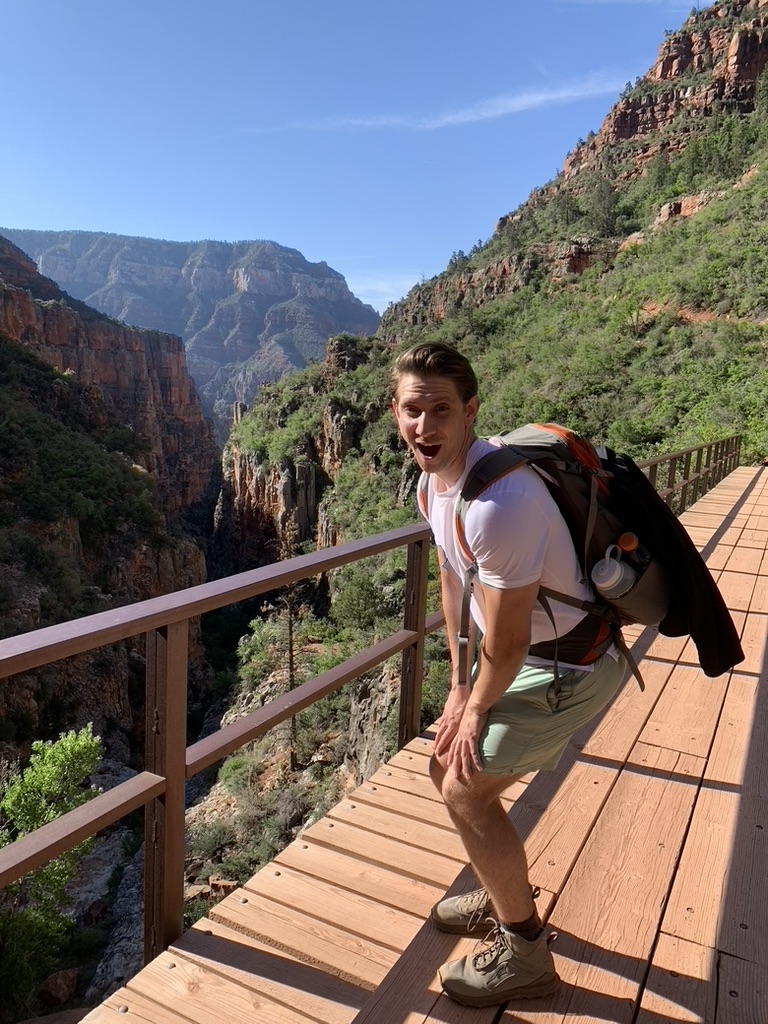Surprised by Joy
- Justin

- Jun 6, 2024
- 3 min read
Updated: Apr 8
Being human is funny. I don’t mean ironic, interesting, odd, difficult, unexpected, or any other word I often mean when I say that. I mean, it’s humorous, laughable, joy-inducing. Laughter has an amazing ability to bring people together. Sure, we hear about how a common enemy unites, but what about the last time you were sitting around with a group of friends belly-laughing? I love that feeling of togetherness. But something that bugged me as I wrote and erased countless drafts this week was that everything I’ve written recently felt heavy and intense. Let’s be clear: these topics are weighty, but I sometimes feel a real disconnect between the heaviness of my writing and my lived experience.
Coming out has brought a lightness and a fuller embracing of my humanity. On both sides of this topic, though, it’s easy for the gravity of rights and identity and calling to overshadow those funny little moments in our lives that remind us we have more commonalities than differences. And I think in an effort to avoid “approving” of sin and “witnessing” to the truth, we can edit ourselves out of some of these beautiful, human moments.

A couple of weeks ago, I had the absolute adventure of hiking from one side of the Grand Canyon to the other—in a single day. I went with two guys, and we traversed the rugged desert ground, pushing ourselves close to our limits as we trekked two dozen miles and thousands of feet in elevation as temperatures rose to the nineties. So, a couple of hours into the hike, as we crossed a bridge on this epic [manly] expedition, what pose did you think I struck when I handed my friend my phone for a picture? The Sorority Squat. If you’re unfamiliar with this pose, see exhibit A. Laughter ensued, and as a ham for the camera, more absurd poses were taken. Why? Because I was in my happy place.
Or several months ago, when one of my friends, Caleb, was running some errands with his friend, Sean. They were in the middle of a conversation when Caleb lost his train of thought and stopped talking for a few steps. They entered the store, and the conversation continued, but a few minutes later, Sean circled back to that untimely pause, Um, were you checking out that guy as we walked in? [awkward pause] Well, yeah, I, I was, actually. [another pause] Confession: Me too. He responded, and they both broke down in laughter in the back of the store. Why? Because who of us hasn’t laughed with a friend after gawking at a cute stranger? The moment ended with one of them raising their eyes to heaven and—without sarcasm—made the sign of the cross as he prayed aloud, Lord, thank you for making such an attractive man.
Several years ago, another friend, David, was sitting down with three of his best friends for dinner at a restaurant. You know the type; they joke about things they shouldn’t, are always poking fun at each other, but at the end of the day always have your back. These are guys that he grew up with and had known for years, and in the past few months, he’d come out to them one by one. They all knew David was gay and knew each other knew, but it still wasn’t something they talked about. The waiter came over to take their order—we’ll assume an attractive male—and as soon as he was out of earshot, David’s friend turned to him and said with a smirk, So you gonna hit on the waiter you f*g? And all four of them burst out laughing because it was like everything was normal: an inappropriate joke poking at my friend that also said, Hey, we know this part about you now, but that doesn’t change how we see you or want to be with you.
And let me be clear, this is David’s story, and for that moment with those friends in that context, he’s stated it was exactly the right thing to say-he felt loved. But for many others, the “f” word has been used to disparage, and probably isn’t something to throw out in most contexts. But in this moment it opened a door; this could be talked about or even joked about. David was known by his peers for the first time, and he knew that this group would help carry this burden; they would help make it light.
We can create redemption moments, mini eucatastrophies, where something that was used to insult, divide, and ostracize turns into a point of humor and even connection. But it requires that we create spaces where people feel safe enough to show up as they are and that we receive people right where they’re at. When we do this, there might just be a bit of joy to discover, too.


Comments